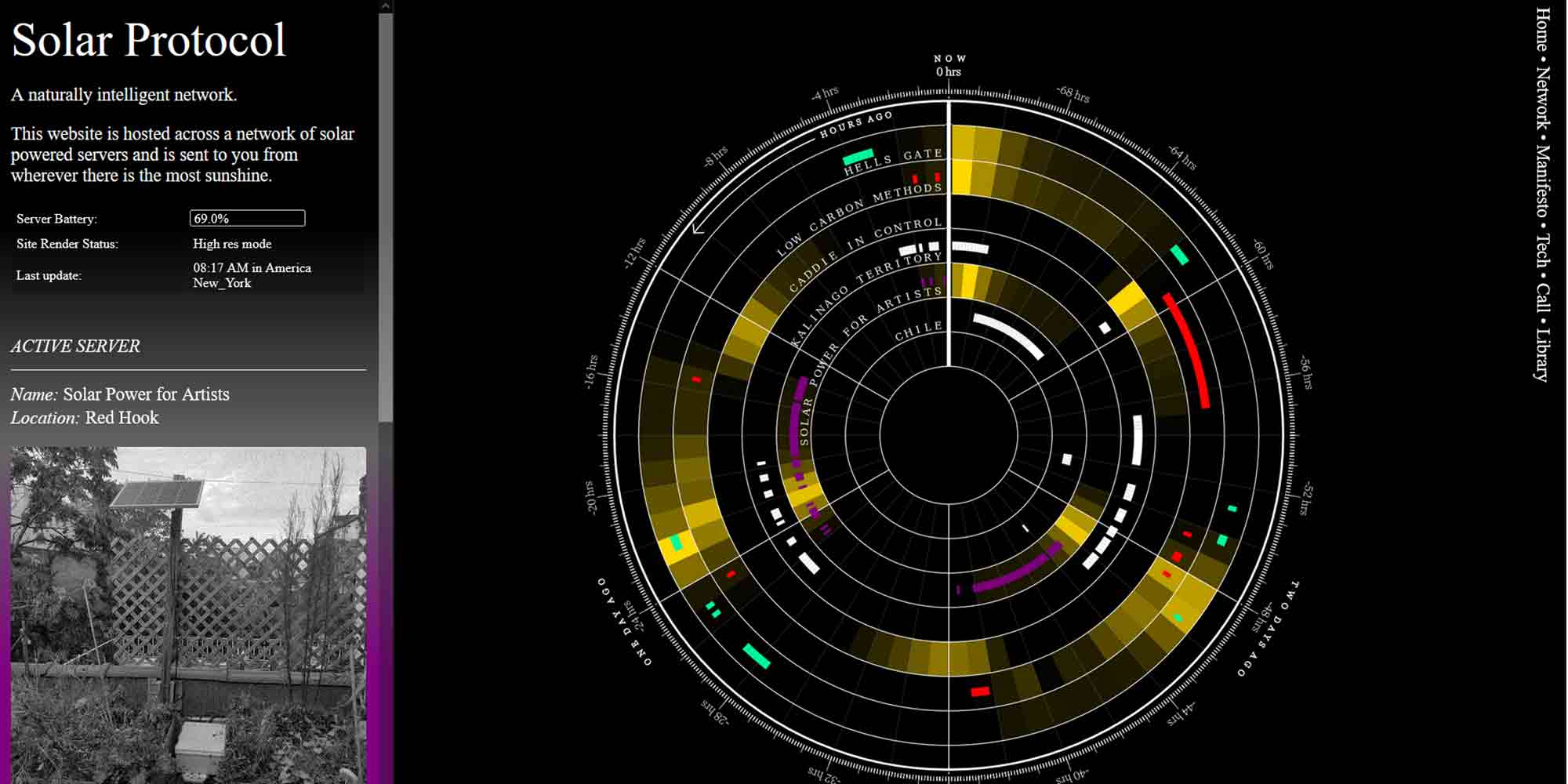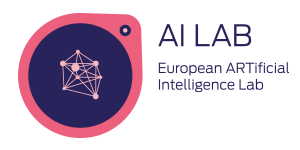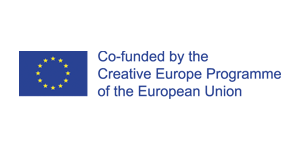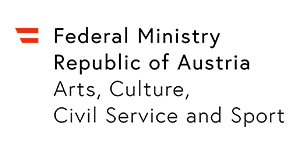This workshop will introduce participants to the conceptual and technical aspects of the Solar Protocol project. Solar Protocol is a global network of small-scale solar powered web servers that serve content based on whichever device is in the most sunlight at a given time. The project is a collaboration between Tega Brain, Alex Nathanson, Benedetta Piantella, and a growing community of server stewards located all over the world.
This workshop is presented in the framework of the European ARTificial Intelligence Lab, which is co-funded by the Creative Europe Program of the European Union and the Austrian Federal Ministry for Arts, Culture, Civil Service and Sport
 Tega Brain (AU): is an Australian-born artist and environmental engineer whose work examines issues of ecology, data systems and infrastructure. She has created wireless networks that respond to natural phenomena, systems for obfuscating fitness data, and an online smell-based dating service. Her work has recently been shown in the Vienna Biennale for Change, the Guangzhou Triennial, and in venues like the Haus der Kulturen der Welt and the Whitney Museum, among others.
Tega Brain (AU): is an Australian-born artist and environmental engineer whose work examines issues of ecology, data systems and infrastructure. She has created wireless networks that respond to natural phenomena, systems for obfuscating fitness data, and an online smell-based dating service. Her work has recently been shown in the Vienna Biennale for Change, the Guangzhou Triennial, and in venues like the Haus der Kulturen der Welt and the Whitney Museum, among others.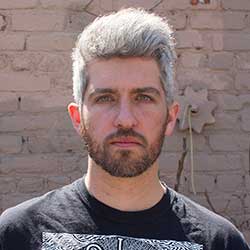 Alex Nathanson (US): is a multimedia artist, technologist, and educator. His work is primarily focused on exploring both the experimental and practical applications of sustainable energy technologies, particularly photovoltaic solar power. His work has been featured at Issue Project Room, the Museum of the Moving Image, Film Society of Lincoln Center, Dome of Visions, and the Art Prospect Festival. He was one of the long-term artists in residence at Flux Factory from 2012 to 2016, and his multi-media performance group Fan Letters was awarded residencies at The Watermill Center in 2017 and 2019. Solar Protocol, a collaboration with Tega Brain and Benedetta Piantella, was awarded a fellowship at Eyebeam in 2020. As a solar power designer, he has created interactive and educational projects for The Climate Museum, Peabody Essex Museum, Solar One, and the NYC Department of Education, among others. Most recently, his book A History of Solar Power Art and Design was published by Routledge.
Alex Nathanson (US): is a multimedia artist, technologist, and educator. His work is primarily focused on exploring both the experimental and practical applications of sustainable energy technologies, particularly photovoltaic solar power. His work has been featured at Issue Project Room, the Museum of the Moving Image, Film Society of Lincoln Center, Dome of Visions, and the Art Prospect Festival. He was one of the long-term artists in residence at Flux Factory from 2012 to 2016, and his multi-media performance group Fan Letters was awarded residencies at The Watermill Center in 2017 and 2019. Solar Protocol, a collaboration with Tega Brain and Benedetta Piantella, was awarded a fellowship at Eyebeam in 2020. As a solar power designer, he has created interactive and educational projects for The Climate Museum, Peabody Essex Museum, Solar One, and the NYC Department of Education, among others. Most recently, his book A History of Solar Power Art and Design was published by Routledge.  Benedetta Piantella (IT): is a designer turned humanitarian technologist. She has been involved in international development for the past ten years, ever since her experience of surviving the Tsunami in 2004. She has also been teaching for the past decade in different disciplines and age groups, from Lego Robotics to K-12 students to HCI, Physical Computing and Engineering for Development to graduate students at NYU. She founded two R&D companies focused on producing sustainable solutions to social problems worldwide and built partnerships with organizations such as the UN, UNICEF, The Earth Institute, Universities such as NYU, Columbia University and Princeton, and multiple NGOs. Her design research and practice focus on applying systems thinking and user-driven development to ensure equitable access to life-sustaining resources, often through networks, data-collection and real-time monitoring, and distributed infrastructure.
Benedetta Piantella (IT): is a designer turned humanitarian technologist. She has been involved in international development for the past ten years, ever since her experience of surviving the Tsunami in 2004. She has also been teaching for the past decade in different disciplines and age groups, from Lego Robotics to K-12 students to HCI, Physical Computing and Engineering for Development to graduate students at NYU. She founded two R&D companies focused on producing sustainable solutions to social problems worldwide and built partnerships with organizations such as the UN, UNICEF, The Earth Institute, Universities such as NYU, Columbia University and Princeton, and multiple NGOs. Her design research and practice focus on applying systems thinking and user-driven development to ensure equitable access to life-sustaining resources, often through networks, data-collection and real-time monitoring, and distributed infrastructure. 